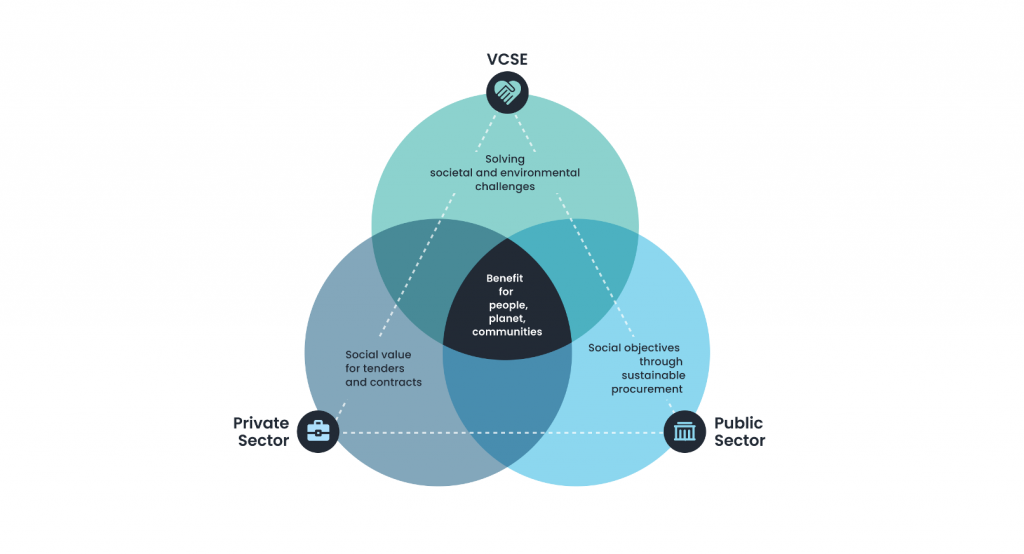Opinion piece by Tiia Sammallahti, CEO, whatimpact National Social Value Marketplace Last week, the government released its new National Procurement Policy Statement to support the new Procurement Act 2023 taking place on 24th February 2025, outlining how it plans to leverage its £350 billion annual buying power to benefit society. This builds on the
National Procurement Policy Statement has the potential to transform the funding and other resource allocations to grass-root VCSE projects





